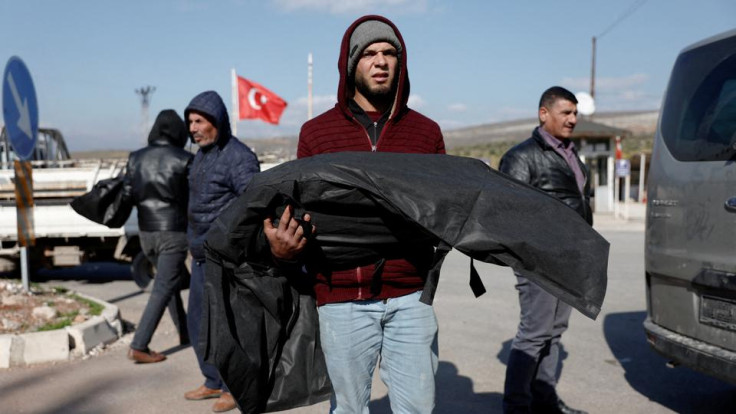WHO is sending health supplies to 400,000 impacted people in both Turkey and Syria
The WHO's efforts in Turkey are focusing on preventing further suffering alongside emergency relief.

As of today, 33,000 people are known to have died as a result of the two earthquakes which ravaged southern Turkey and northern Syria last Monday, on February 6, 2023. 80,000 are injured in Turkey alone. Syrian refugees are finally returning home - in bodybags.
Beyond these tragedies, however, is the fear that more horror is yet to be experienced. The threat of infectious disease looms, freezing temperatures continue to endanger countless lives and yet more are at risk of long-term physical and psychological trauma.
Gerald Rockenschaub, the Regional Emergency Director for the World Health Organisation's (WHO) European Region, spoke of the WHO's intentions regarding its aid efforts in Turkey.
He said "our main role is to coordinate very closely with the Ministry of Health" and "respond to those health needs [on the ground]".
The WHO already had a field office in Gaziantep - a Turkish city 33km from the epicentre - used primarily for humanitarian operations in Northwestern Syria which is now also acting as the response hub for their operations for this crisis.
Rockenschaub stressed the immense importance of early intervention to prevent outbreaks of infectious diseases, saying, "we need to strengthen the early warning systems to prevent outbreaks and to respond to infectious disease risks", in a "more consolidated, concentrated" way. The risk of an outbreak was, he emphasised, significant as "critical supply lines, water and sanitation will be compromised", and that "[the risk] is definitely increasing as we go along".
Following its immediate on-the-ground response, the WHO is sending health supplies to 400,000 impacted people in both Turkey and Syria. A total of 109 tons of trauma and emergency surgery supplies is intended to treat not only those injured in the earthquakes or aftershocks, but also, the WHO said, to treat illnesses such as pneumonia that are expected to rise dramatically in number over the next days and weeks. The WHO's Emergency Medical Teams initiative has also been activated to provide essential healthcare to those affected.
Thousands homeless in freezing temperatures
The bitterly cold winter currently gripping Turkey has impeded rescue efforts and intensified the suffering experienced. Thousands of people have been forced to spend multiple nights in makeshift shelters or cars after being rendered homeless or temporarily displaced - or simply too scared to return home - and are battling temperatures well below freezing.
Amongst the victims are millions of Syrian refugees, currently living in Turkey. Philippe Leclerc, UNHCR's representative in Turkey, said at a briefing on Tuesday, that in Kilis province, 1 in 2 people are Syrian refugees, while in Gaziantep, Sanliurfa and Hatay, the figure is 1 in 4 or 5.
Prior to the earthquake, the vast majority of Syrian refugees living in Turkey were housed within local communities - only 47,000 were living in the 7 temporary camps in the 10 affected provinces - withstanding heinous racism, unimaginable hardship and familial separation to forge new lives for themselves.
Many are now experiencing the decimation of their homes and families for the second time in just over a decade and are being forced to rebuild their lives once again.
When describing the WHO's aims for its aid operations, Rockenschaub underscored the enormous psychological trauma that many will endure. He stated: "there is a massive, obviously psychological trauma apart from the physical trauma that needs to be addressed as well, particularly in those vulnerable groups, we see a high level of mental stress, of psychosocial support needs".
Those living with disabilities in the affected regions are amongst the most vulnerable. Many will be unable to reach resource distribution points, access necessary care equipment and may have lost access to mobility aids. Accessible temporary shelters are also limited.
The WHO has also highlighted the importance of guaranteeing the continued supply of necessary medicines to those with chronic health conditions as part of the WHO's commitment to ensuring that victims' critical health needs are met, not only over the coming weeks but throughout the longer-term recovery stage.
© Copyright IBTimes 2025. All rights reserved.




















